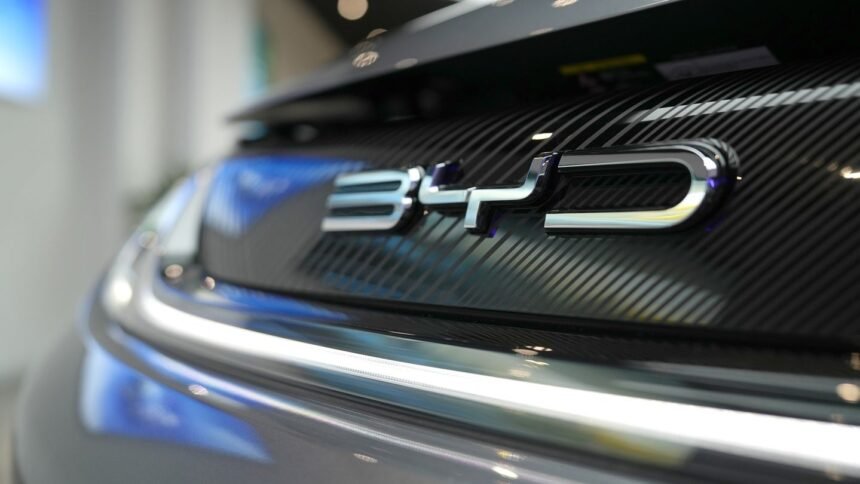China’s BYD, a prominent player in the electric vehicle market, is adjusting its manufacturing and growth strategies amidst rising inventory levels and fierce competition in the Chinese auto industry. Despite surpassing Tesla in sales volume, BYD is facing challenges that have led to a slowdown in production.
The company, known for selling 4.27 million cars in 2024 primarily in China, had set ambitious targets for this year with a near-30% increase in sales to 5.5 million vehicles. However, in response to sales not meeting expectations, BYD has made significant production cuts at several of its Chinese plants. Night shifts have been canceled, and output has been reduced by at least one-third of capacity in these factories.
While the exact extent and duration of these production cuts are not clear, the move is aimed at cost savings. The decision comes after BYD’s output growth slowed down significantly in recent months, prompting the company to take steps to address the situation. This news has impacted the company’s stock value, causing shares of BYD to drop nearly 1%.
The broader Chinese auto market is also feeling the pressure, with dealerships reporting high inventory levels. BYD dealers, in particular, are holding an average inventory of 3.21 months, the highest among all brands in the country. This has led to price incentives and triggered a selloff in Chinese auto stocks, prompting rivals to cut prices as well.
In response to the challenging domestic market conditions, Chinese automakers like BYD are looking to expand their presence in overseas markets. BYD has already exported nearly 20% of the 1.76 million vehicles it sold in the first five months of 2025. This shift towards international markets reflects a broader trend among Chinese automakers seeking growth opportunities beyond the domestic market.
As the industry faces deepening price competition and increased regulatory scrutiny, automakers are under pressure to balance production levels and inventory management. The China Auto Dealers Chamber of Commerce has called on manufacturers to set “reasonable production” targets and avoid offloading excess inventory on dealerships.
Overall, BYD’s decision to scale back production highlights the challenges facing the Chinese auto industry and the need for strategic adjustments to navigate the evolving market dynamics. As the company recalibrates its manufacturing operations, it remains to be seen how these changes will impact its long-term growth and competitiveness in the global automotive market.







